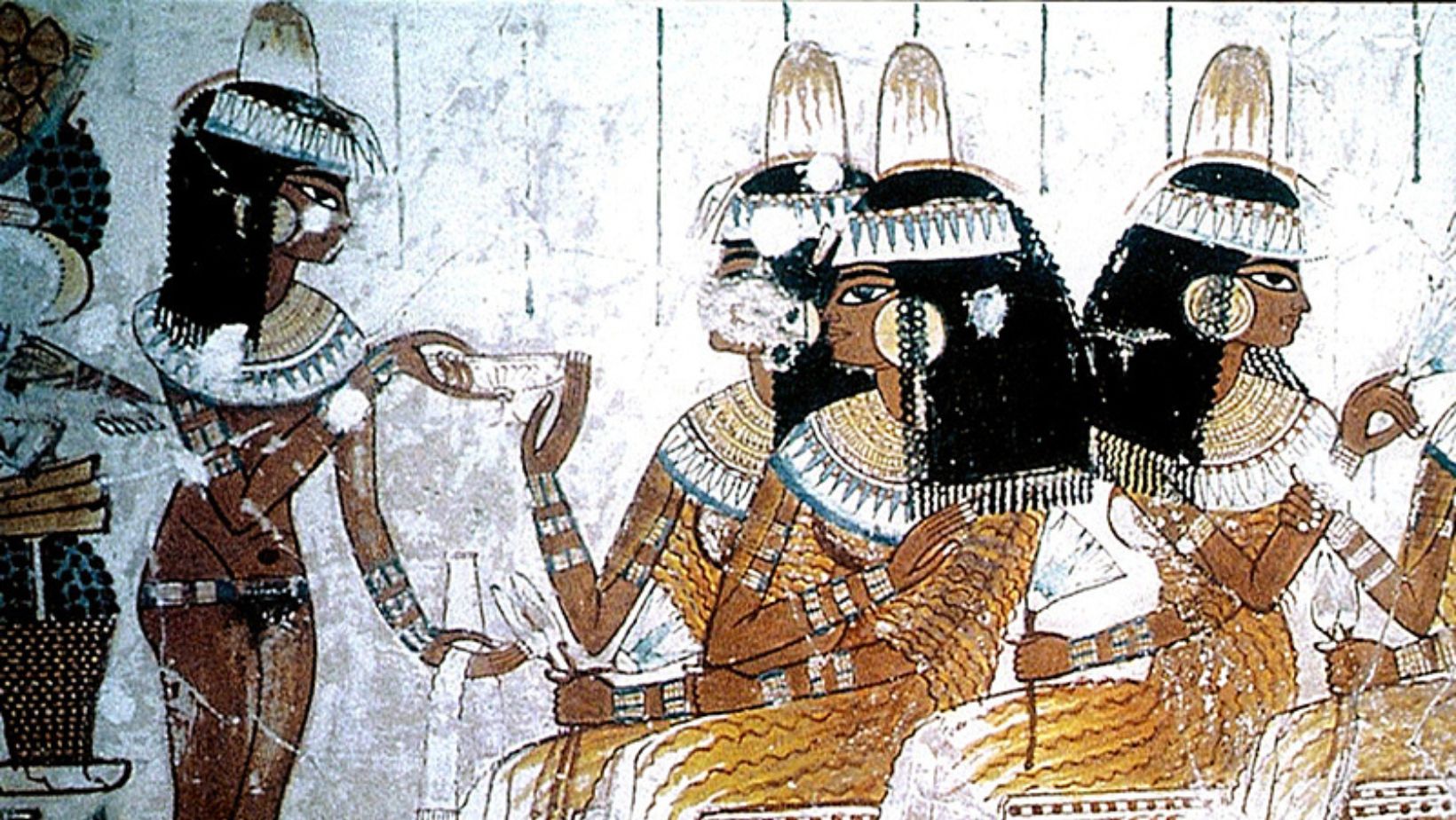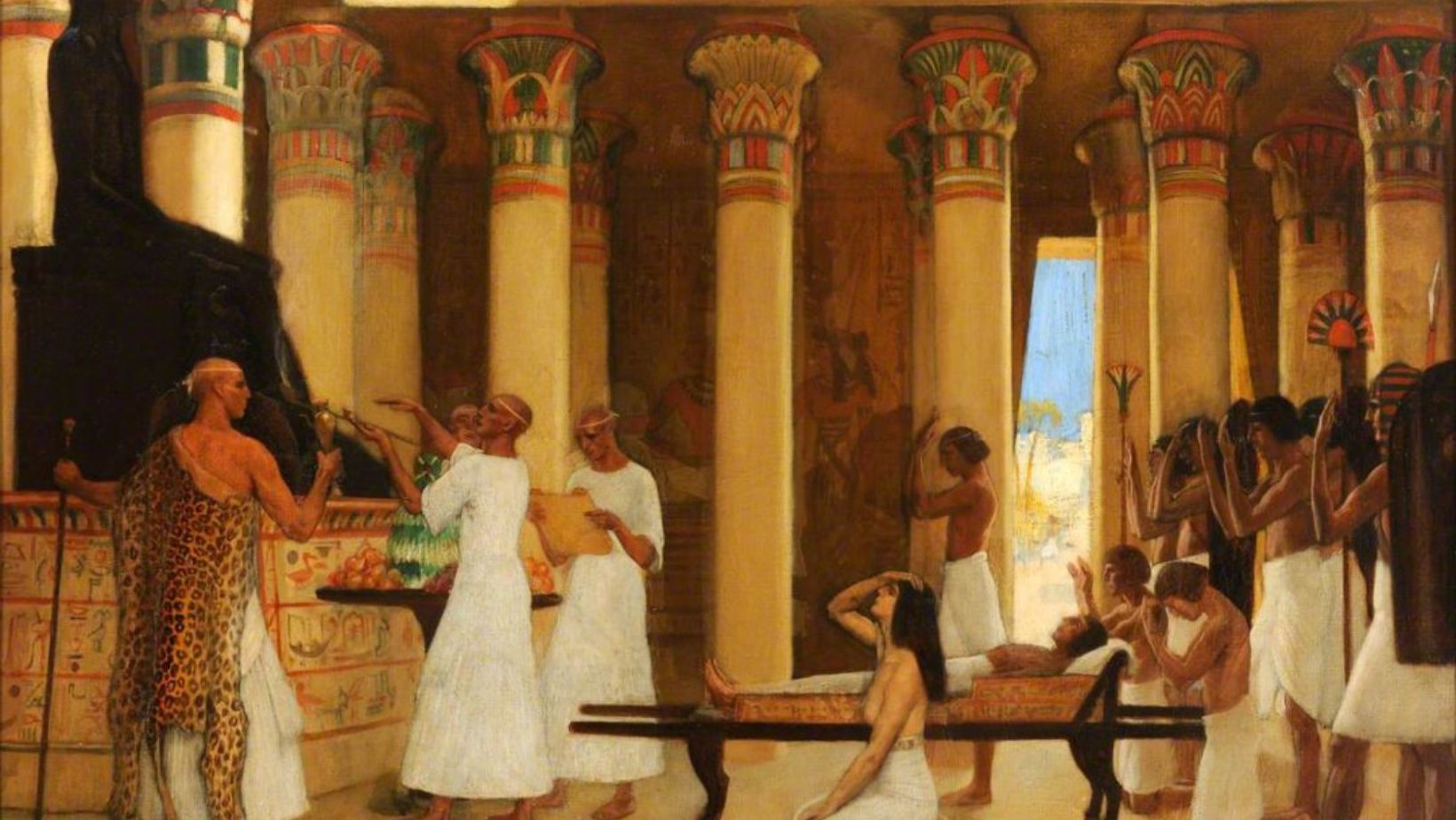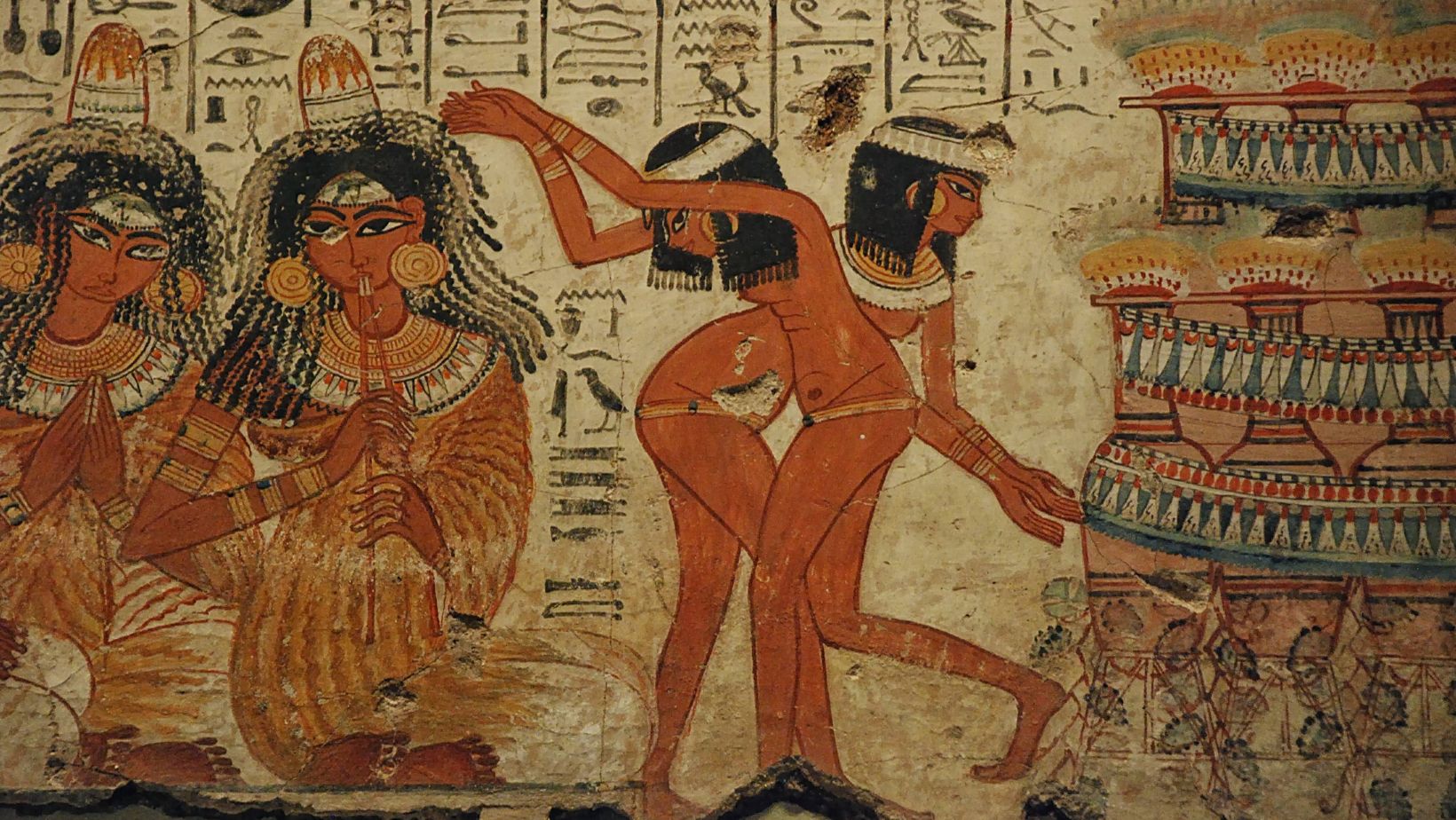The role of women in Marriage in ancient Egypt was more than just a social contract—it was deeply intertwined with culture, religion, and family life. It was seen as the foundation of society, vital for maintaining balance and harmony. In Egypt, marriage was a sacred duty, often blessed by the gods. It was essential for continuing family lines, ensuring prosperity, and even for securing a place in the afterlife. Understanding marriage in ancient Egypt gives us a glimpse into their values of love, duty, and the sacred role of family. Let’s explore how this institution shaped the daily lives of Egyptians.
Marriage as a Social Contract: Role of Women

In ancient societies, marriage was often seen as more than just a union between individuals. It was primarily an agreement between families. This contract established alliances, ensured the transfer of property, and secured political or economic interests. Families carefully arranged marriages to maintain their social status and influence.
In ancient Egypt, marriage was also viewed through the lens of legal agreements. The concept of a marriage contract was essential in ensuring that the rights and responsibilities of both parties were clearly defined. These contracts detailed aspects like dowries, inheritance, and the distribution of property. They also served as a form of protection for both the husband and wife.
Legal contracts in ancient Egypt were crucial for maintaining social order. They were formalized through written agreements, which were often signed and sealed by witnesses. This process made sure that the terms were legally binding and could be enforced if necessary. Marriage, in this context, was not just a personal decision but a strategic, legally backed arrangement between families.
The Rights of Women in Marriage: Role of Women
Women’s legal rights in marriage have evolved significantly over time. In many countries, women now have the same legal rights as men within a marriage. They can make decisions about property, finances, and even healthcare. Women are also entitled to equal rights in matters of inheritance and family matters, including the guardianship of children.
Property ownership and financial autonomy are crucial aspects of marriage. Women today can own property and control assets independently of their spouses. In some regions, laws protect women’s right to keep their property in the event of divorce. Women can also earn income, manage their finances, and pursue careers without restrictions tied to their marital status.
The right to divorce is another important legal right for women. Historically, women faced obstacles in seeking divorce, but modern legal systems have worked to make the process more equitable. Women can now seek divorce for various reasons, including abuse, infidelity, and irreconcilable differences. This gives women the freedom to leave unhealthy marriages and rebuild their lives if necessary.
Marriage Rituals and Ceremonies: Role of Women
Marriage rituals and ceremonies have been an integral part of human culture for centuries. In many societies, traditional wedding rituals vary but often share common themes of unity and commitment. Customs such as the exchange of vows and feasts are present in nearly every culture. These rituals are meant to honor the bond between two people and their families.
Symbolic items like wedding rings and amulets play an essential role in these ceremonies. Rings, often made of precious metals, represent eternal love and commitment. Amulets or other symbolic objects are used to protect the couple and bring blessings to their union. These items carry deep meaning and serve as reminders of the promises made during the ceremony.
Priests, shamans, or other religious figures typically guide the marriage ceremony. They are responsible for performing rituals, offering prayers, and invoking blessings. In many cultures, gods or deities are called upon to witness the union and grant prosperity and fertility. The role of the priest and divine intervention underscores the spiritual importance of marriage in various traditions.
Marriage and Religion: Divine Approval

In many ancient cultures, marriage was seen as a union blessed by the gods. Gods and goddesses were believed to play a crucial role in ensuring marital harmony and prosperity. They were often called upon for divine approval, with rituals and prayers aimed at securing their favor. In Egypt, for example, couples would invoke Hathor, goddess of love, while in Greece, Hera, the goddess of marriage, was central to wedding ceremonies.
Temples were vital spaces for seeking divine intervention. Couples often made offerings to the gods to secure a harmonious marriage. These offerings could range from flowers and food to precious items, depending on the culture. In ancient Rome, couples would visit temples and make vows to deities such as Juno, hoping for a fruitful and lasting partnership.
Religious ceremonies were an integral part of marriage, cementing the union in the eyes of the divine. By receiving divine approval, couples believed they could gain strength, fertility, and protection in their marriage. This connection between religion and marriage was seen as vital in ensuring the success of the relationship, both spiritually and practically.
Roles of Men and Women in Marriage: Role of Women
In traditional marriages, the roles of men and women have often been clearly defined. Men were typically seen as the primary providers, responsible for earning money and supporting the family financially. This role included working outside the home, often in physically demanding or high-status jobs. In contrast, women took on the role of caretakers and homemakers, managing the household and caring for children.
Women were generally tasked with maintaining the home, cooking, cleaning, and ensuring the well-being of the family members. Their responsibilities also included nurturing the children and providing emotional support to their husbands. This division of labor was rooted in societal norms, where men and women had distinct duties based on their perceived strengths. These roles, however, have evolved significantly over time.
In modern marriages, the roles of men and women are often more fluid, with both partners sharing responsibilities. Many women now work outside the home, while men contribute to household chores and child-rearing. This shift reflects changes in gender equality and the recognition that both partners can contribute equally to the family’s success and well-being. The traditional division of labor is no longer rigid, allowing couples to find roles that work best for them.
The Ideal Egyptian Wife: Expectations and Virtues
In ancient Egyptian society, the ideal wife was seen as a supportive partner who upheld family values. She was expected to be loyal, nurturing, and devoted to her husband and children. Fidelity was paramount, and infidelity was considered a serious breach of trust. Her role was integral to maintaining harmony and stability within the home.
An ideal wife was also expected to manage the household efficiently. She was responsible for overseeing domestic tasks such as cooking, cleaning, and ensuring that the family was well cared for. Her nurturing abilities extended to caring for children and supporting her husband’s endeavors. The ancient Egyptians valued women who could maintain a well-organized and harmonious household.
In addition to her duties at home, a virtuous wife was expected to show respect and deference to her husband. She had to act as his partner in managing family affairs, often managing finances and resources. Her role as a mother was equally significant, as the Egyptians valued motherhood and the role of women in shaping the future generations. Thus, an ideal Egyptian wife balanced practical duties with moral virtues to maintain a successful family life. Role of Women
Marriage and Fertility: The Connection with Children
Children have always been central to the concept of marriage and family. In many cultures, having children is seen as a vital part of marriage, symbolizing the continuation of family lines and the passing down of heritage. For centuries, children were regarded as blessings that ensured the survival of the community and the future of the family. In some societies, a childless marriage could even be viewed as incomplete or unsuccessful.
Fertility rituals and beliefs play a significant role in the desire for children. Ancient cultures often performed ceremonies to encourage conception, believing that certain rites would invite the gods’ favor. These rituals varied, from offerings made at sacred sites to specific prayers and chants performed by priests. In some societies, fertility symbols like the goddess of fertility were worshipped to ensure a successful pregnancy.
Beliefs about fertility often extended beyond ritual practices, influencing daily life. Superstitions about foods, lunar cycles, or particular times of year were believed to affect a couple’s chances of having children. These cultural beliefs reflected the deep connection between marriage, fertility, and the importance of children in the social structure.
Notable Marriages in Ancient Egyptian History: Role of Women
Ancient Egyptian history is filled with famous royal marriages that shaped its politics and culture. One of the most well-known unions was between Cleopatra VII and Julius Caesar. Their relationship not only solidified Cleopatra’s power in Egypt but also aligned her with the Roman Empire, a key force in ancient history. Later, Cleopatra’s marriage to Mark Antony further solidified her political ambitions and rivalry with Rome.
Another notable couple was Pharaoh Akhenaten and Queen Nefertiti. Their marriage was central to Akhenaten’s religious revolution, where they worshiped the sun god Aten above all other deities. This radical shift in Egypt’s religious practices left a lasting impact on the ancient world, though the dynasty ended after Akhenaten’s death.
Pharaohs often married for political reasons, strengthening alliances and consolidating power. These unions were essential for maintaining stability, securing the throne, and ensuring the continuation of royal bloodlines. In many cases, marriage was more about politics than love, with strategic partnerships creating strong, influential dynasties.
Divorce in Ancient Egypt: Procedures and Rights
In Ancient Egypt, divorce was a legal process governed by established customs. If a marriage ended, both parties could initiate separation, though the procedures varied depending on their social status. The divorce process usually involved a formal declaration, often in front of witnesses, and a written document detailing the terms. Property, financial support, and the custody of children were important aspects addressed during the separation. Role of Women
Men had the primary right to initiate a divorce, as they controlled the household and wealth. However, women could also seek divorce if they faced neglect, abuse, or a lack of support. In these cases, women could present their grievances to the court or temple officials. Egyptian women enjoyed relatively equal rights in divorce, allowing them to retain property and sometimes even a portion of their dowry. Role of Women
Once a divorce was finalized, both parties were free to remarry. For men, the process was typically straightforward, while women’s remarrying rights were sometimes influenced by the terms of their divorce agreement. Children of the marriage were usually placed under the care of the mother, though this varied by class. Ultimately, Ancient Egyptian divorce laws were designed to balance the rights of both men and women, ensuring fair treatment in marital separations.
Marriage and Gender Equality: A Complex Picture
In ancient Egypt, marriage laws were a blend of equality and patriarchal structures. Women had certain rights, such as owning property and initiating divorce. They could also represent themselves legally in court, which shows a degree of independence. However, the overall legal and social system remained patriarchal, with men holding more power in the public and political spheres. Role of Women
Marriage itself was seen as a partnership but was also defined by gender roles. Men typically had the authority to make decisions on matters like finances and family. Women, on the other hand, were expected to manage the household and care for children. While women had legal standing, the male-dominated society restricted their influence outside the home. Role of Women
In terms of inheritance, women could inherit property, but it was often passed through the male line. This kept wealth and power concentrated in the hands of men. Nonetheless, some women, like royal figures, broke these norms, showing that women could hold significant power in specific contexts. This complex balance highlights the nuanced role of gender equality in ancient Egyptian marriage. Role of Women
Legacy of Ancient Egyptian Marital Practices

Marriage in ancient Egypt was a cornerstone of society, deeply embedded in religious and cultural norms. It was seen as a union not just of two people, but of families, and was important for maintaining social order. Ancient Egyptians practiced monogamy, and marriage contracts were legally binding, often sealed with a formal ceremony. Love, although present, was considered secondary to the need for producing heirs and ensuring family continuity. Role of Women
These practices influenced later civilizations, particularly in the Mediterranean and Near East. For example, marriage contracts and ceremonies in Rome and Greece showed similarities to those in ancient Egypt. Concepts of monogamy and family loyalty, central to Egyptian marriage, became key values in these cultures. Additionally, the idea of a formal marriage contract became a widespread tradition.
In modern Egypt, traces of ancient marriage rituals can still be seen. Marriages often involve family arrangements, with a formal engagement and dowry exchange. While modern practices have evolved, the emphasis on family and community ties remains strong. Ancient Egyptian marital customs continue to influence contemporary attitudes toward marriage in Egyptian society. Role of Women
Conclusion: Role of Women
In ancient Egypt, marriage was a vital cultural cornerstone, symbolizing stability, continuity, and social order. It was not just a union between individuals, but an essential component of family life and society. Women, while traditionally expected to manage the household and bear children, saw their roles in marriage evolve over time. By the New Kingdom, women had greater legal rights, including ownership of property and the ability to initiate divorce. This shift reflects broader societal changes, highlighting how marriage adapted to the evolving status of women in ancient Egyptian culture, contributing to the complexity and richness of their social structure.
FAQs
What were the legal rights of women in ancient Egyptian marriages?
In ancient Egypt, women had significant legal rights within marriage. They could own property, initiate divorce, and even manage their own financial affairs. While marriages were typically seen as a union of families, women held a respected position in ensuring household stability. Role of Women
How were marriages arranged in ancient Egypt?
Marriages in ancient Egypt were often arranged by families, with the aim of strengthening alliances or securing economic stability. While love was not always the primary motivation, there is evidence to suggest that affection and mutual respect could play roles in marital choices.
Did women have any influence in religious marriage rituals?
Women participated in various aspects of marriage rituals, although the ceremonies were often dominated by male priests and male-centered deities. The role of women was particularly important in domestic and spiritual life, where they were seen as protectors of the home and family.
What role did marriage play in the social structure of ancient Egypt?
Marriage in ancient Egypt was crucial for maintaining social structure. It often served to preserve family lineage, ensure inheritance, and uphold property rights. The family unit was foundational to Egyptian society, and marriage was seen as essential for both societal order and personal fulfillment.
Were there any notable differences in marriage customs between the classes in ancient Egypt?
While marriage rituals and rights were relatively similar across all social classes, the wealthy often had more elaborate ceremonies, and polygamy was more common among the elite, such as Pharaohs and high officials. For the common people, marriage was a simpler, more personal affair.

